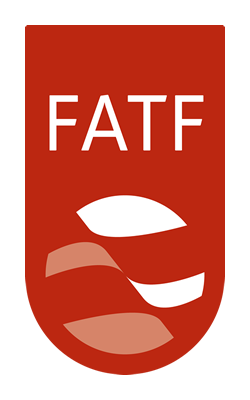November 27, 2020

The government’s spokesman has warned the public not to focus exclusively on US sanctions because Iran’s refusal last year to adhere to the FATF standards is doing increasing harm to Iran’s financial standing.
Ali Rabii said the decision to reject the standards of the Financial Action Task Force (FATF), the international anti-money laundering watchdog, has further undermined Iran’s access to international banking and financial services.
Addressing reporters in Tehran October 27, Rabii said the problems were predictable and the government had repeatedly warned about the dire consequences of being thrust on the FATF blacklist. If President-elect Joe Biden were to end sanctions on Iran next year, the Islamic Republic would still remain under banking sanctions—FATF’s banking sanctions.
 Last February, the FATF stopped giving Iran extensions of its deadline for Iran to come into compliance with FATF banking standards. It then put Iran back on its blacklist, a position it shares with only one other country, North Korea. Reputable banks do not want to get tied up in business dealings with a country on the blacklist.
Last February, the FATF stopped giving Iran extensions of its deadline for Iran to come into compliance with FATF banking standards. It then put Iran back on its blacklist, a position it shares with only one other country, North Korea. Reputable banks do not want to get tied up in business dealings with a country on the blacklist.
At its October plenary session, FATF announced it was keeping Iran and North Korea on the blacklist. For those two countries, “FATF calls on all members and urges all jurisdictions to apply enhanced due diligence, and, in the most serious cases, countries are called upon to apply counter-measures to protect the international financial system,” the FATF statement said.
Rabii said, “This has created difficulties in our economic and financial relations with the outside world, even with friendly countries, like China and Russia.”
After FATF put Iran on the blacklist, Rabii said banks across the globe tightened restrictions in offering financial services to individual Iranians, as well as the Iranian government.
“The HSBC bank recently refused to open accounts for Iranians,” he said. “In addition, some banks in Germany have increased the risks of financial deals with Iranians and demanded closure of their accounts.”
Rabii described the US “maximum pressure” as the prime factor undermining Iran’s financial industry, saying the FATF blacklist has made a bad situation worse.
The Rohani Administration approved all the changes needed to comply with FATF and the Majlis, then controlled by Reformists, approved four bills needed to bring Iran in line. But the Council of Guardians vetoed two of those four bills. Those two vetoed bills were sent to the Expediency Council, which arbitrates disputes between the Majlis and Council of Guardians. The Expediency Council has hemmed and hawed but taken no action in almost two years.
The FATF also decided last month to beef up monitoring of Iran and North Korea after the United States complained that both countries were using front and shell companies in an effort to evade the restrictions on them.




















